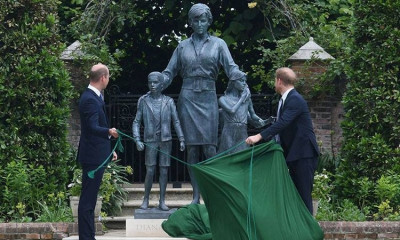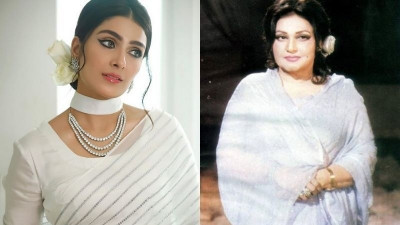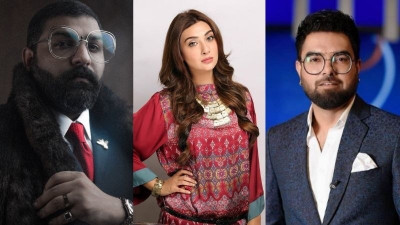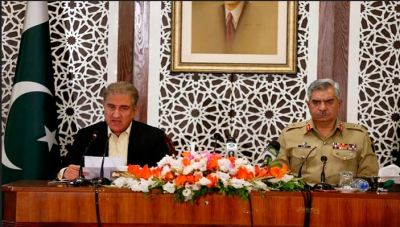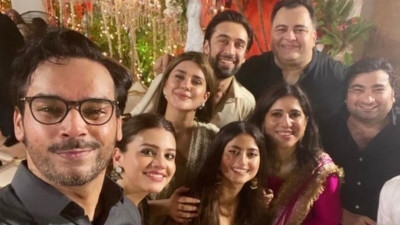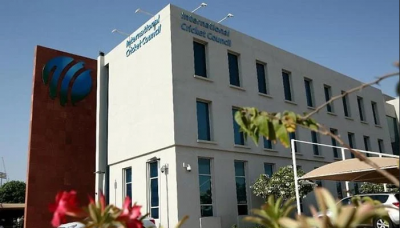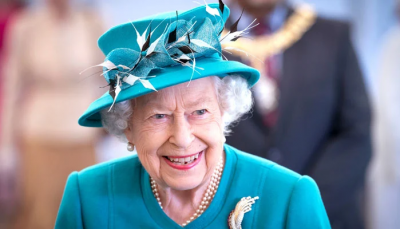Midsummer Chaos had the makings of a successful US teen TV show — an attractive male lead with a mysterious backstory, dramatic parties, and troubled romantic relationships. So why did that formula not work for Pakistani audiences?
When web-series Midsummer Chaos aired, it instantly became the centre of memes and tweets poking fun at it. Even after the release of the second episode, users tweeted about watching the series just to keep up with the jokes. But in the midst of all the spins on Sameer’s aggressive dialogues and recent speculations about the unusual relationship between Haris and an unnamed character played by Meher Bano, there is something telling — a cry for coming-of-age stories that are relatable and moving for the average Pakistani.
The group of teenagers in the web-series are in their summer before college and so far each have their own set of challenges. Sameer has an absent father, Kaira has moved to Pakistan from Canada after her parents got divorced, Alynah is grappling with her identity and Haris has a turbulent romantic relationship with Alynah.
But at the end of the day, they still belong to the Islamabadi elite with money and a well-connected social circle to fall back on. Although such circumstances are not uncommon in Pakistan, the privilege they are surrounded by makes it difficult to empathise with their problems or connect to their characters.
While there are episodes yet to go, how do we empathise with Sameer’s troubles and not view his character as toxic when his first impression was angrily entering his car, lashing out at Harris twice, once over ‘girlfriend problems’ and later for intervening in his scuffle at a party?
Coming-of-age shows like Gossip Girl have soared to fame with similar formulas and so many of us have even intently completed BuzzFeed quizzes to find out whether we are scheming social butterfly Blair or good-girl-gone-bad Serena. But the show and characters are still closely based on social contexts and activities that are common in the US.
How are local audiences supposed to connect to Pakistani teenagers whose biggest trouble on the way to a party is picking up two friends, not being subjected to a round of questioning from parents or skipping from one friend's house to another's car to get there? While obstacles like that may seem minor, such nuances may help tailor characters to local contexts, even if the storyline is based on an American model. But aside from that, even though shows like Gossip Girl and Riverdale may have successfully delivered the dramatic rich kid trope in their shows, they are not the holy grail of coming-of-age TV shows, especially not for Pakistanis.
Gossip Girl has been called out a lot lately for romanticising Chuck Bass’ character despite his predatory nature. Riverdale is frequently made fun of for its overly dramatic storyline and dialogues. If anything, many of us from the Pakistani Gen Z have more frequently watched and connected to American teen shows such as Gilmore Girls or Friends where everyday interactions or financial circumstances add certain challenges and humour to the story. Of all shows, are young Pakistanis really ready for or interested in their very own Riverdale?
Probably not. They crave depth. Young Pakistanis, however lively and outgoing, do not seem to be interested in stories that are just about partying and teenage drama. They want shows and movies that do not shy away from class disparities, hyper-conservative social norms or pressures of living up to familial expectations and responsibilities.
They want shows where young people make money from unconventional careers or navigate double lives to hide from their families or movies where they grapple with the version of Islam they are taught at home and the one they see weaponised in the news. The difference between coming of age in Midsummer Chaos and real life for most Pakistanis can perhaps be best demonstrated by tweets in early May where people shared their coming-of-age experiences.
One thread was particularly popular with other users expressing how much they related to one aspect or another. Coming of age for these young Pakistanis included the parties, the relationships and the drama but there was also a lot more that led up to it — wardrobe changes at a friend’s place from long shirts to short ones, the risk and distress of being snitched on for private social media photos and male friends, hiding text messages and sneaking off to debate tournaments and protests.
These challenges are not distinct to Pakistan but are widespread and often impact women more than men. Some of these challenges solely impact women.
What about the women?
So far, Midsummer Chaos has not accounted for how coming-of-age or even everyday experiences can be different for the male and female characters in the show. Outfit choices are perhaps the most prominent example of a coming-of-age (and honestly, lifelong) experience that impacts women the most. Yet, in Midsummer Chaos, we see Alynah casually walk into a busy café in Islamabad wearing a short dress.

